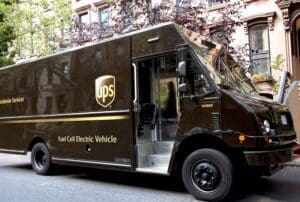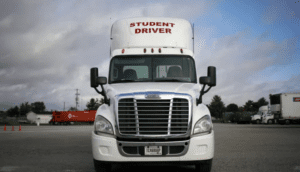 According to the annual survey released by the National Retail Federation’s (NRF) and Prosper Insights & Analytics, consumers plan to spend a collective $24 billion on Easter this year, up from $20.8 billion in 2022 and the previous record high of $21.7 billion in 2020. The survey indicates that 81 percent of Americans will celebrate the holiday and spend an average of $192.01, the highest figure on record. Spending is growing across several categories, and the top Easter items consumers say they are planning to purchase include candy ($3.3 billion), gifts ($3.8 billion) and food ($7.3 billion). Consumers are also expected to spend $4 billion on clothing, $1.8 billion on flowers and $1.7 billion on decorations, along with $1.1 billion on greeting cards. The most popular Easter Sunday activities this year include cooking a holiday meal (56 percent), visiting family and friends (50 percent), and planning an Easter egg hunt (34 percent). And now on to this week’s logistics news.
According to the annual survey released by the National Retail Federation’s (NRF) and Prosper Insights & Analytics, consumers plan to spend a collective $24 billion on Easter this year, up from $20.8 billion in 2022 and the previous record high of $21.7 billion in 2020. The survey indicates that 81 percent of Americans will celebrate the holiday and spend an average of $192.01, the highest figure on record. Spending is growing across several categories, and the top Easter items consumers say they are planning to purchase include candy ($3.3 billion), gifts ($3.8 billion) and food ($7.3 billion). Consumers are also expected to spend $4 billion on clothing, $1.8 billion on flowers and $1.7 billion on decorations, along with $1.1 billion on greeting cards. The most popular Easter Sunday activities this year include cooking a holiday meal (56 percent), visiting family and friends (50 percent), and planning an Easter egg hunt (34 percent). And now on to this week’s logistics news.
- Amazon reports it disposed of 6 million counterfeit items last year
- UPS invests in new driving simulators for employee training
- ‘Referred to as inmates by managers’: DHL workers push to unionize US hub
- Retailers tackle cardboard overload with made-to-fit boxes
- Stop & Shop commits to curbing food waste
- Congress seeks details on spying risks from Chinese cargo cranes
- Lawmakers aim to train more truck drivers
![]() Counterfeit products hurt brands as well as consumers. Unfortunately, the market for counterfeit goods, especially on online marketplaces, continues to grow. From upgrading counterfeit detection technology to destroying merchandise and raiding factories, Amazon says it’s pulling out all the stops to prevent fakes on its platform. The company released its third annual “Brand Protection Report” on Tuesday, outlining all the details of its battle against counterfeits. Subjected to lawsuits by multiple brands over the past several years, Amazon said it is increasing its technology and legal efforts to prevent fakes from getting on the platform. It’s also taking action against those caught selling them, according to the report. The first line of defense for Amazon is its seller verification tools, which blocked 800,000 attempts to set up Amazon stores by “bad actors” looking to sell counterfeits, according to the report. This is down from 2.5 million attempts in 2021 and 6 million in 2020, it said. In this year’s report, Amazon touted the improvement of automated counterfeit removal, stating it cut down on brands’ need to monitor for fakes manually. It stated that 99 percent of all infringements are removed automatically rather than through manual reporting.
Counterfeit products hurt brands as well as consumers. Unfortunately, the market for counterfeit goods, especially on online marketplaces, continues to grow. From upgrading counterfeit detection technology to destroying merchandise and raiding factories, Amazon says it’s pulling out all the stops to prevent fakes on its platform. The company released its third annual “Brand Protection Report” on Tuesday, outlining all the details of its battle against counterfeits. Subjected to lawsuits by multiple brands over the past several years, Amazon said it is increasing its technology and legal efforts to prevent fakes from getting on the platform. It’s also taking action against those caught selling them, according to the report. The first line of defense for Amazon is its seller verification tools, which blocked 800,000 attempts to set up Amazon stores by “bad actors” looking to sell counterfeits, according to the report. This is down from 2.5 million attempts in 2021 and 6 million in 2020, it said. In this year’s report, Amazon touted the improvement of automated counterfeit removal, stating it cut down on brands’ need to monitor for fakes manually. It stated that 99 percent of all infringements are removed automatically rather than through manual reporting.
 Whether it is first, middle, or last mile, for truck drivers, safety is one of the most important parts of the job. UPS is bringing new safety training to Louisville and other sites across the country. New drivers will have the chance to sit behind the wheel of a driving simulator. In 2022, UPS invested $345 million in safety, including high-tech training at 11 training sites around the country, with 33 additional driving simulators across the U.S. In 2023, UPS will add 20 more driving simulators, including one in Louisville. The company’s training methods have proven effective based on their safe driving records. More than 10,000 people worldwide have been recognized for the Circle of Honor, which is awarded to drivers with 25 years of accident-free service.
Whether it is first, middle, or last mile, for truck drivers, safety is one of the most important parts of the job. UPS is bringing new safety training to Louisville and other sites across the country. New drivers will have the chance to sit behind the wheel of a driving simulator. In 2022, UPS invested $345 million in safety, including high-tech training at 11 training sites around the country, with 33 additional driving simulators across the U.S. In 2023, UPS will add 20 more driving simulators, including one in Louisville. The company’s training methods have proven effective based on their safe driving records. More than 10,000 people worldwide have been recognized for the Circle of Honor, which is awarded to drivers with 25 years of accident-free service.
![]() A former manager at one of DHL’s largest facilities claims fellow managers referred to workers as “inmates” and themselves as “wardens” of a prison in conversations about how to stop a union organizing drive at the site. The revelations come as DHL is in a bit of a disagreement with the Teamsters over a union election to represent workers at the site. DHL employs about 3,000 workers at the CVG Global Hub, with 900 workers currently seeking to form a union with Teamsters Local 100. DHL and the union are still disputing the size and scope of the bargaining unit and an election date has yet to be determined by the National Labor Relations Board. Through the union organizing campaign, workers have filed 17 unfair labor practice charges against DHL, alleging harassment, intimidation, surveillance and retaliation from management for union activities. The Teamsters have accused DHL of violating a neutrality agreement with the union and failing to live up to the company’s global declaration of workers and human rights by opposing the union.
A former manager at one of DHL’s largest facilities claims fellow managers referred to workers as “inmates” and themselves as “wardens” of a prison in conversations about how to stop a union organizing drive at the site. The revelations come as DHL is in a bit of a disagreement with the Teamsters over a union election to represent workers at the site. DHL employs about 3,000 workers at the CVG Global Hub, with 900 workers currently seeking to form a union with Teamsters Local 100. DHL and the union are still disputing the size and scope of the bargaining unit and an election date has yet to be determined by the National Labor Relations Board. Through the union organizing campaign, workers have filed 17 unfair labor practice charges against DHL, alleging harassment, intimidation, surveillance and retaliation from management for union activities. The Teamsters have accused DHL of violating a neutrality agreement with the union and failing to live up to the company’s global declaration of workers and human rights by opposing the union.
 A few weeks ago I wrote that Walmart and packaging specialist Packsize announced that they will collaborate on a right-sized, on-demand box machine using technology designed for Walmart’s deployment. The point is to stop shipping small online orders in boxes that are ridiculously oversized. Retailers traditionally have used boxes of set sizes to fill online orders, many of them not suited to the enormous array of products now available online. The push to deliver goods faster has also put a premium on speed in fulfillment centers, leading workers to stuff goods in the closest available boxes. And now more retailers are exploring the use of on-demand boxing. Amazon uses technology from Italian automation company CMC SpA to make the custom boxes. The retailer has invested in CMC through its $2 billion Climate Pledge Fund, a venture-capital fund focused on investing in sustainable technologies. The made-to-fit boxes, along with other efforts to reduce the use of cardboard, have cut the average weight of packaging used per shipment by 38 percent since 2015. Electronics seller Crutchfield Corp. has been shipping orders in made-to-fit packaging for roughly a decade, and the automation has cut the average box size in half and reduced shipping and packaging material expenses.
A few weeks ago I wrote that Walmart and packaging specialist Packsize announced that they will collaborate on a right-sized, on-demand box machine using technology designed for Walmart’s deployment. The point is to stop shipping small online orders in boxes that are ridiculously oversized. Retailers traditionally have used boxes of set sizes to fill online orders, many of them not suited to the enormous array of products now available online. The push to deliver goods faster has also put a premium on speed in fulfillment centers, leading workers to stuff goods in the closest available boxes. And now more retailers are exploring the use of on-demand boxing. Amazon uses technology from Italian automation company CMC SpA to make the custom boxes. The retailer has invested in CMC through its $2 billion Climate Pledge Fund, a venture-capital fund focused on investing in sustainable technologies. The made-to-fit boxes, along with other efforts to reduce the use of cardboard, have cut the average weight of packaging used per shipment by 38 percent since 2015. Electronics seller Crutchfield Corp. has been shipping orders in made-to-fit packaging for roughly a decade, and the automation has cut the average box size in half and reduced shipping and packaging material expenses.
 Following an expansion across New England earlier this year, Stop & Shop is adding the Flashfood program to more than 60 of its stores across Long Island, New York City, Westchester County and the Hudson Valley. With Flashfood, shoppers save up to 50% off items nearing their best-by date, including meat, dairy, seafood, fresh produce and baked goods. More than 30,000 shoppers across the Northeast have used Flashfood via Stop & Shop since the partnership kicked off in 2021, resulting in nearly $500,000 in grocery savings and over 233,280 pounds of food being saved from landfills. In January, the retailer widened the digital marketplace to 34 more stores in Massachusetts, following its implementation in 70 locations across its footprint. Stop & Shop will further roll out the Flashfood app to more than 300 stores across its footprint later this year.
Following an expansion across New England earlier this year, Stop & Shop is adding the Flashfood program to more than 60 of its stores across Long Island, New York City, Westchester County and the Hudson Valley. With Flashfood, shoppers save up to 50% off items nearing their best-by date, including meat, dairy, seafood, fresh produce and baked goods. More than 30,000 shoppers across the Northeast have used Flashfood via Stop & Shop since the partnership kicked off in 2021, resulting in nearly $500,000 in grocery savings and over 233,280 pounds of food being saved from landfills. In January, the retailer widened the digital marketplace to 34 more stores in Massachusetts, following its implementation in 70 locations across its footprint. Stop & Shop will further roll out the Flashfood app to more than 300 stores across its footprint later this year.
 Top lawmakers who oversee the Department of Homeland Security want to hold hearings and obtain access to classified and unclassified government documents that expose potential security vulnerabilities posed by dozens of Chinese-made cranes at American ports across the country. It is “extremely worrisome” that about 80% of American port cranes use Chinese software that is manufactured by a Chinese company, said House Committee on Homeland Security Chairman Mark Green (R., Tenn.) in a statement. “On behalf of the American people, this Committee is demanding answers on the risks these cranes pose to U.S. cybersecurity and the resilience of our critical infrastructure, which is a core aspect of the homeland security mission.” The cranes are equipped with Chinese-made software that could be used to surveil or manipulate port operations, U.S. officials said. No evidence has emerged that Beijing has used the cranes to conduct nefarious activity at any American ports, officials said.
Top lawmakers who oversee the Department of Homeland Security want to hold hearings and obtain access to classified and unclassified government documents that expose potential security vulnerabilities posed by dozens of Chinese-made cranes at American ports across the country. It is “extremely worrisome” that about 80% of American port cranes use Chinese software that is manufactured by a Chinese company, said House Committee on Homeland Security Chairman Mark Green (R., Tenn.) in a statement. “On behalf of the American people, this Committee is demanding answers on the risks these cranes pose to U.S. cybersecurity and the resilience of our critical infrastructure, which is a core aspect of the homeland security mission.” The cranes are equipped with Chinese-made software that could be used to surveil or manipulate port operations, U.S. officials said. No evidence has emerged that Beijing has used the cranes to conduct nefarious activity at any American ports, officials said.
 A pair of bipartisan lawmakers have reintroduced legislation offering tax credits to U.S. truck drivers in an effort to address a dire pandemic-related shortage. The Strengthening Supply Chains Through Truck Driver Incentives Act aims to combat what lawmakers said was a shortfall of about 80,000 commercial truck drivers in 2021, caused by hiring and retention challenges. Fewer certified drivers can lead to more expensive shipping and delays in receiving goods, said the offices of the bill’s sponsors, Reps. Mike Gallagher, R-Wis., and Abigail Spanberger, D-Va., in a press release Monday. The bill would establish a two-year refundable tax credit of up to $7,500 for truck drivers with a valid Class A commercial driver’s license who drive at least 1,900 hours in a year. It would offer a two-year refundable tax credit of up to $10,000 for new drivers or people in a registered trucking apprenticeship. New commercial drivers who did not drive the year prior, or who did not drive for 1,420 hours in the current year, would also be eligible for the credit.
A pair of bipartisan lawmakers have reintroduced legislation offering tax credits to U.S. truck drivers in an effort to address a dire pandemic-related shortage. The Strengthening Supply Chains Through Truck Driver Incentives Act aims to combat what lawmakers said was a shortfall of about 80,000 commercial truck drivers in 2021, caused by hiring and retention challenges. Fewer certified drivers can lead to more expensive shipping and delays in receiving goods, said the offices of the bill’s sponsors, Reps. Mike Gallagher, R-Wis., and Abigail Spanberger, D-Va., in a press release Monday. The bill would establish a two-year refundable tax credit of up to $7,500 for truck drivers with a valid Class A commercial driver’s license who drive at least 1,900 hours in a year. It would offer a two-year refundable tax credit of up to $10,000 for new drivers or people in a registered trucking apprenticeship. New commercial drivers who did not drive the year prior, or who did not drive for 1,420 hours in the current year, would also be eligible for the credit.
That’s all for this week. Enjoy the weekend and the song of the week, Jefferson Airplane’s White Rabbit.

















